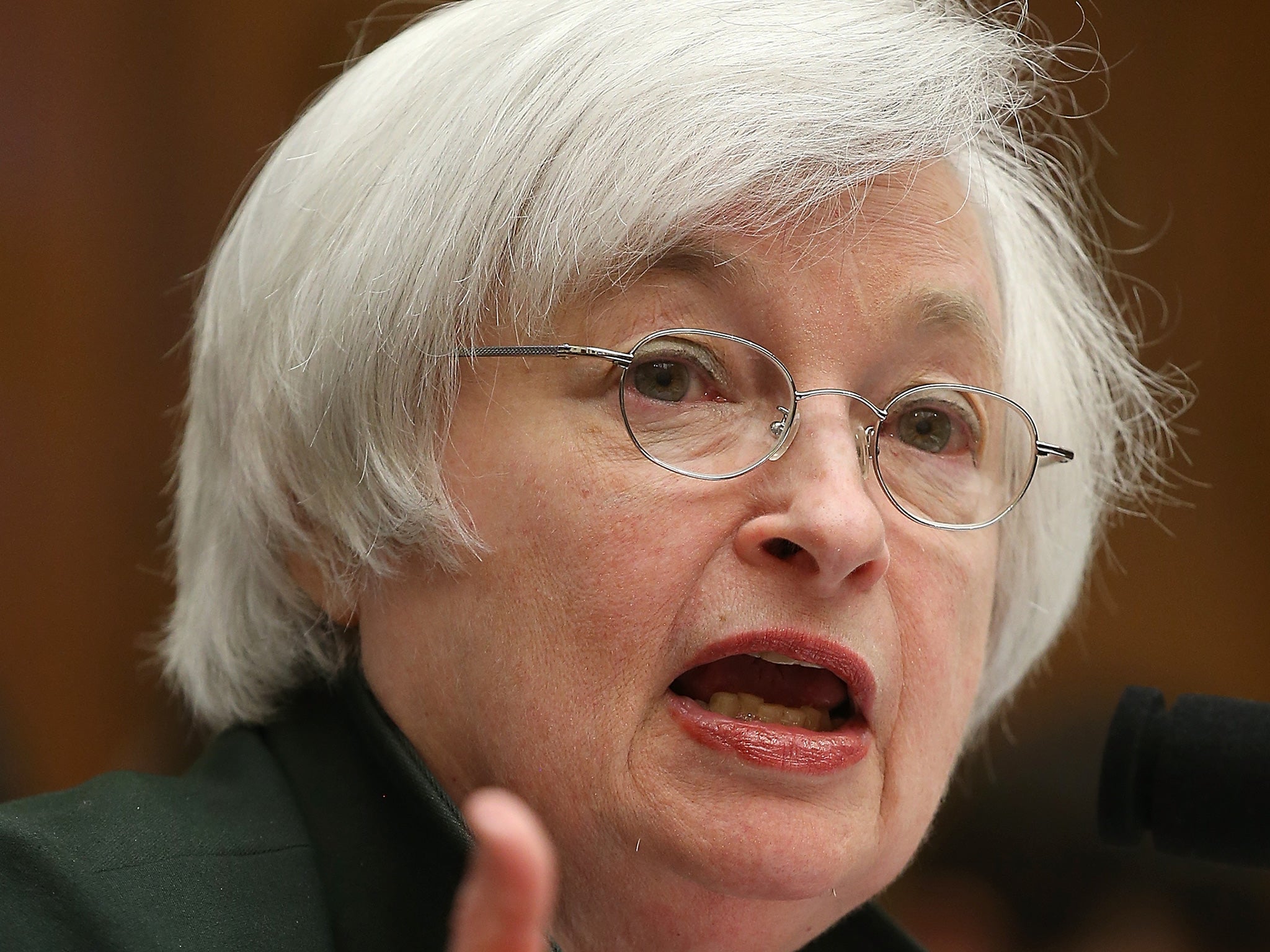Shares slide as upbeat job figures lay ground for American rate rise
Markets down around the world amid fears of US policy switch and stronger dollar

Global share prices fell last night as the world economy braced itself for an end to the super-low interest rates in the US.
Despite the recent gloom spreading from China, American employment figures came in stronger than expected, paving the way for the Federal Reserve to start hiking interest rates this month.
The prospect of an early US rate rise has been almost as much of a drag on share prices as the continuing shocks from Beijing, where the government’s attempts to control its currency and stock markets have created turmoil over the summer.
American employers hired 173,000 workers in August, while the previously reported figures for July and August were revised upwards, painting a relatively upbeat picture for the US economy. Meanwhile, the unemployment rate came down from 5.2 per cent to 5.1 per cent.
“It doesn’t seem that what’s happened in financial and international markets is significantly affecting the US economy,” said Ryan Sweet, an analyst at Moody’s.
The prospect of higher US rates has given investors the jitters around the world due to concerns about the ripple effect on other countries, particularly in emerging markets, whose debts and other liabilities are priced in dollars. A more expensive dollar means their debt becomes harder to service with their local currencies, with knock-on effects for their entire economies.
Furthermore, once US rates begin to rise, assets such as bonds and the dollar become more attractive, sucking global investment out of shares, property and other assets that have benefited from years of super-easy central bank monetary policy.
For that reason, any event that increases the likelihood of a hike in the cost of borrowing in America drives down global stock markets.
Last night, the FTSE 100 closed down 151.18 at 6,042, a 2.4 per cent fall, while the Dow Jones Industrial Average was down 303 points at 16,071 in late-afternoon trading. European share markets were also down between 2 per cent and 3 per cent, while the dollar rose more than a third of a cent against the pound.
The Federal Reserve, under the leadership of Janet Yellen, meets on 16-17 September to evaluate the world economy before deciding on its next interest rate move. While policymakers have stressed that the US labour market is a key factor, developments in China will also play a role.
Not all observers took a rosy view of the unemployment data, however. Douglas Borthwick, of Chapdelaine FX in New York, declared the numbers “abysmal” and said they proved the underlying foundation of the US economy was weak. He highlighted a fall in labour costs despite the rising employment figure, suggesting a downward pressure on wages and inflation. “We can be fairly certain that the Fed will not raise rates in September,” he said.
The non-farm payroll figures in the US formed a backdrop to the meeting of finance ministers and central bankers of the G20 richest nations in Ankara. The meeting began with a communiqué in which ministers said they would not stand in the way of a US rate rise, but warned that such a move remained “one of the main sources of uncertainty in financial markets”.
Subscribe to Independent Premium to bookmark this article
Want to bookmark your favourite articles and stories to read or reference later? Start your Independent Premium subscription today.

Join our commenting forum
Join thought-provoking conversations, follow other Independent readers and see their replies